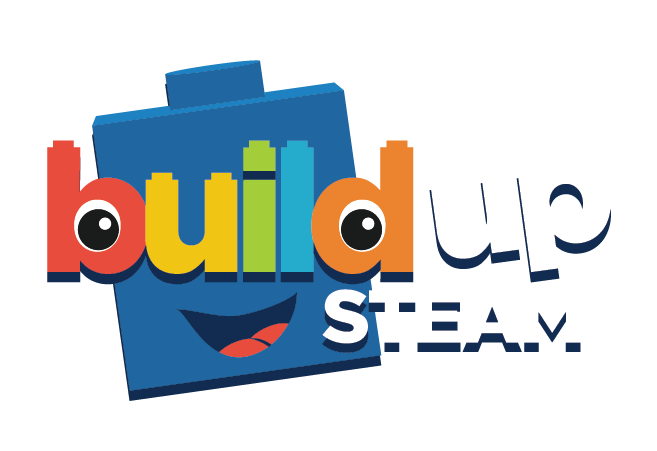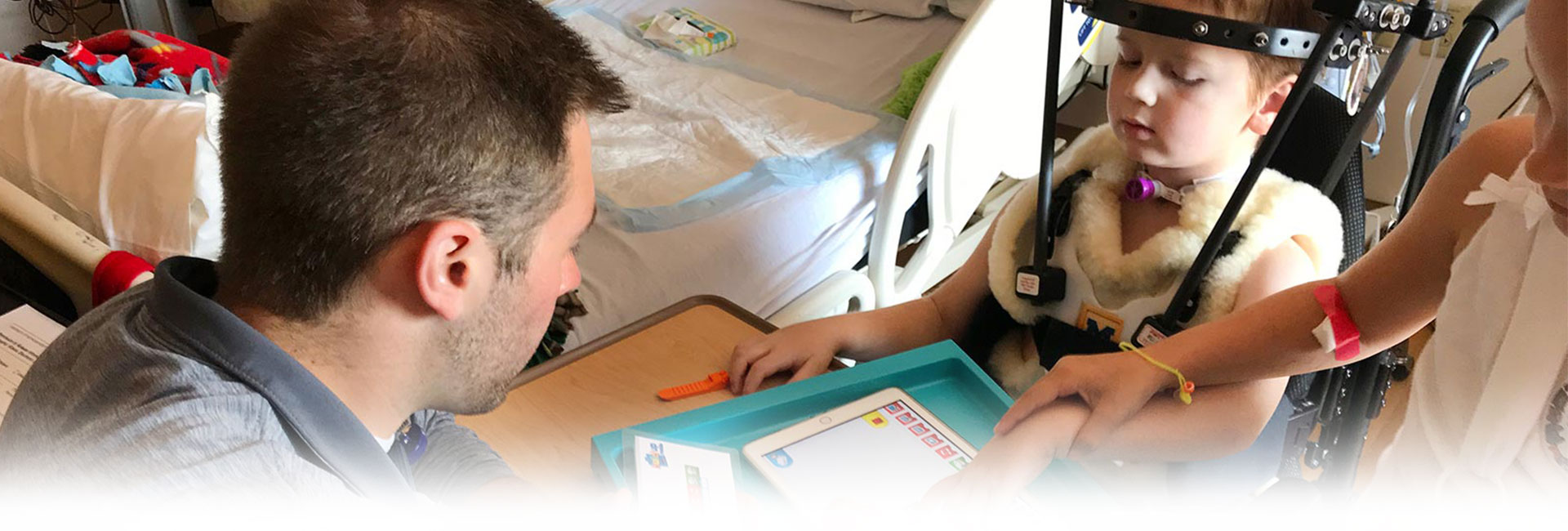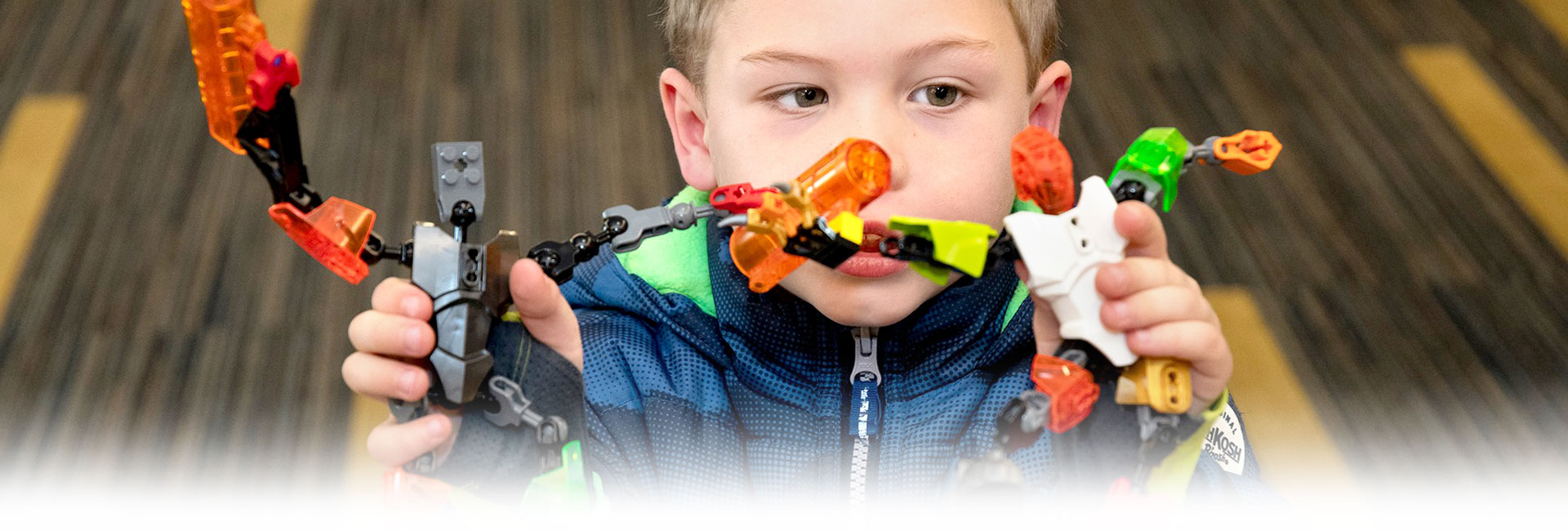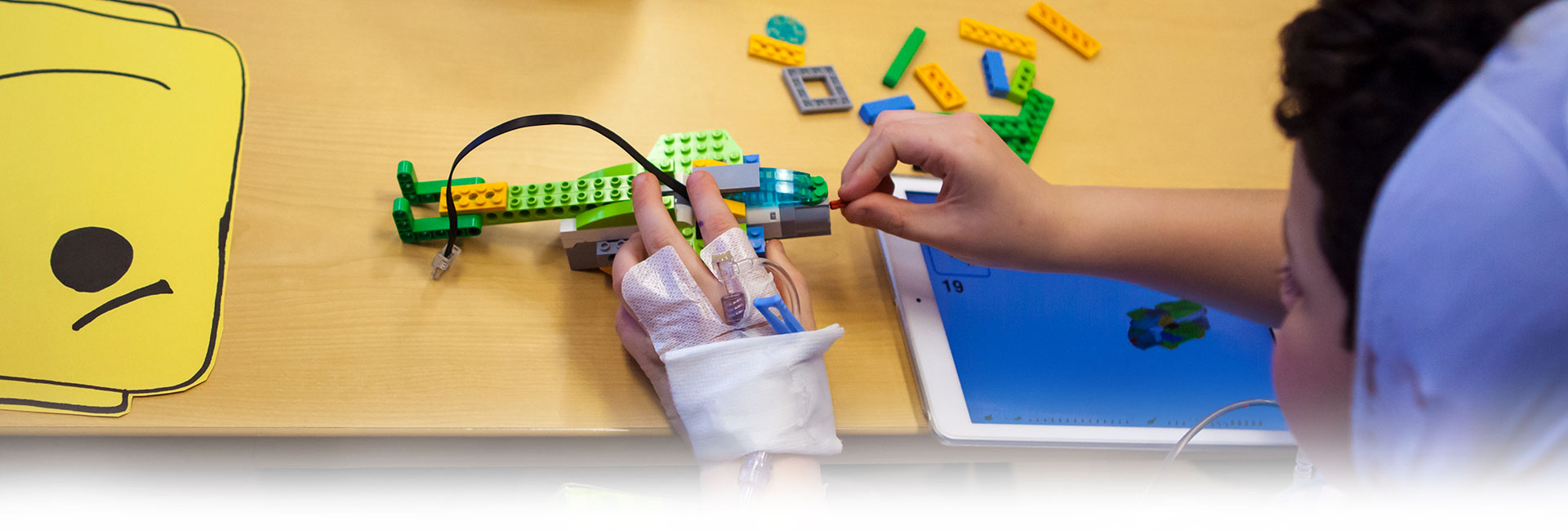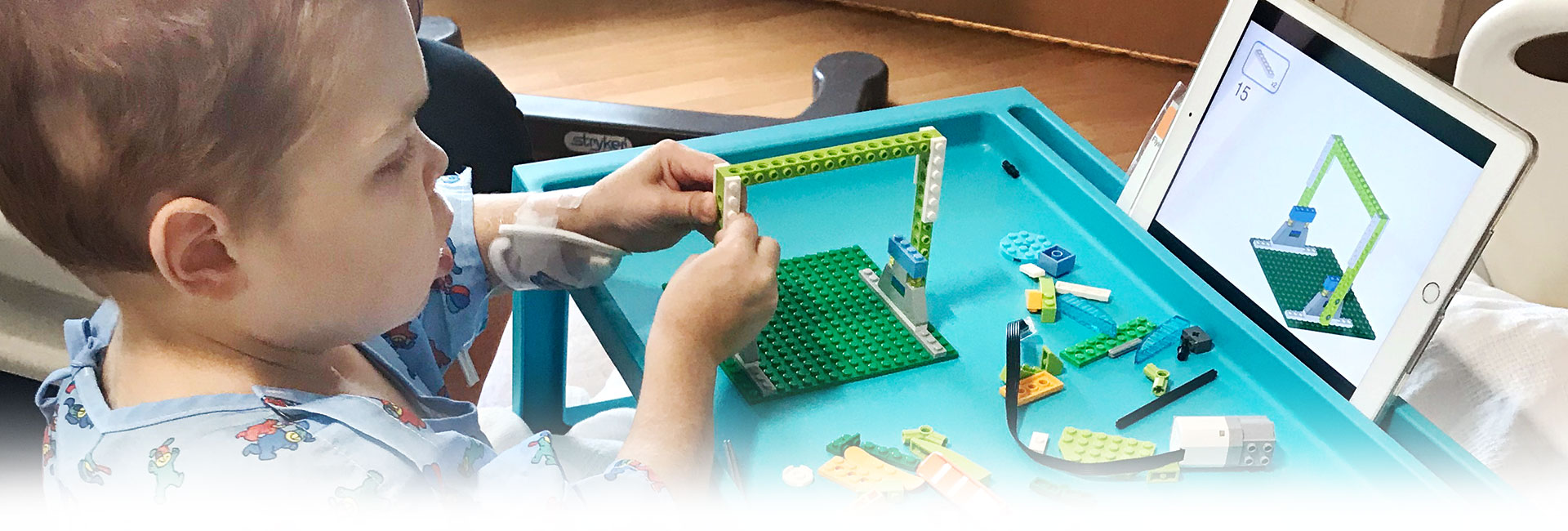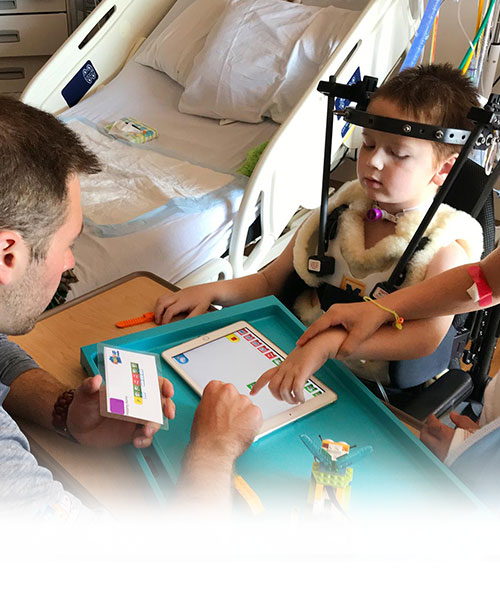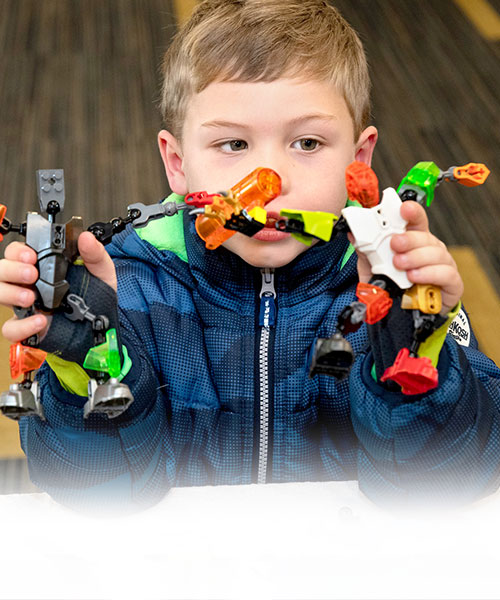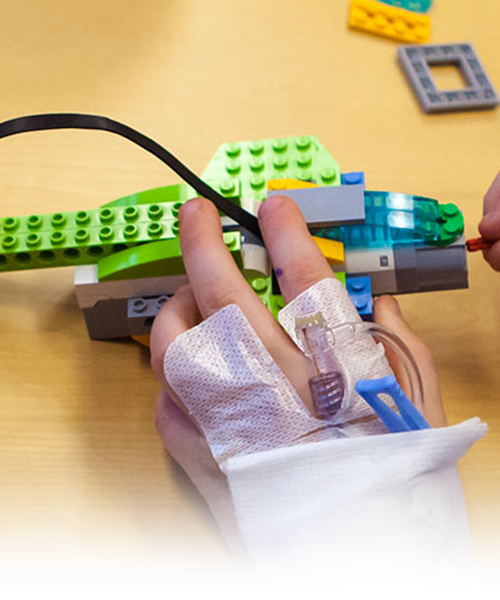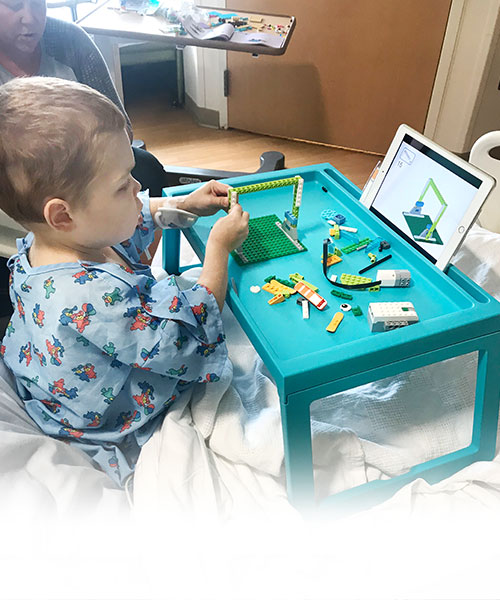Hospitals
join our mission
Partnership
Buildup STEAM partners with Child Life programs to provide bedside robotics to patients and families in the hospital. Once we determine a sanitation process that meets your hospital's standards, we identify operational areas. We have found success working with general inpatient pediatric units and Hem/Onc units.
Current Hospital Partners
Mott Children’s Hospital
Children’s Hospital of Michigan
Children’s Hospital of Philadelphia
Comer Children’s Hospital
Children’s Hospital Colorado
Fundraising
Infection Control
Buildup STEAM works with hospital staff and infection prevention professionals to ensure our sanitation process exceeds the standards of the hospital setting. Our sanitation process ensures all materials are sanitized before and after entering a patient's room. After materials are used they are immediately sanitized. All interactions meet standard hospital procedures and best practices to ensure every interaction is safe and fun for the patients and families we serve.
Our COVID-19 practices meet the hospital standard for medical professionals working onsite and are subject to change based on the needs and standards of the hospitals.
Launch
Continued consultation
Child Life goals & benefits
Offering a variety of therapeutic activities, our programs provide a brief escape for patients, encouraging creativity, positivity, and self-expression to enhance their well-being.
- Patient well-being: Enhancing a patient's sense of control and independence.
- Mobile adaptation: Facilitating access to a therapeutic creative service, overcoming barriers imposed by specific diagnoses or conditions.
- Family centered care: Engaging parents and siblings equally interested in the project.
- Fine motor skills: Engaging in activities like picking up, squeezing, and pushing LEGO together.
- Normalization: Introducing familiar activities into the hospital environment to create a comforting atmosphere, promoting positive coping.
- Socialization: Fostering bedside and group social interactions, especially crucial for patients in isolated rooms due to precaution policies.
- Non-Pharmacological Pain Management: Providing a constructive focus to distract patients from pain, stress, or anxiety they may be experiencing.

